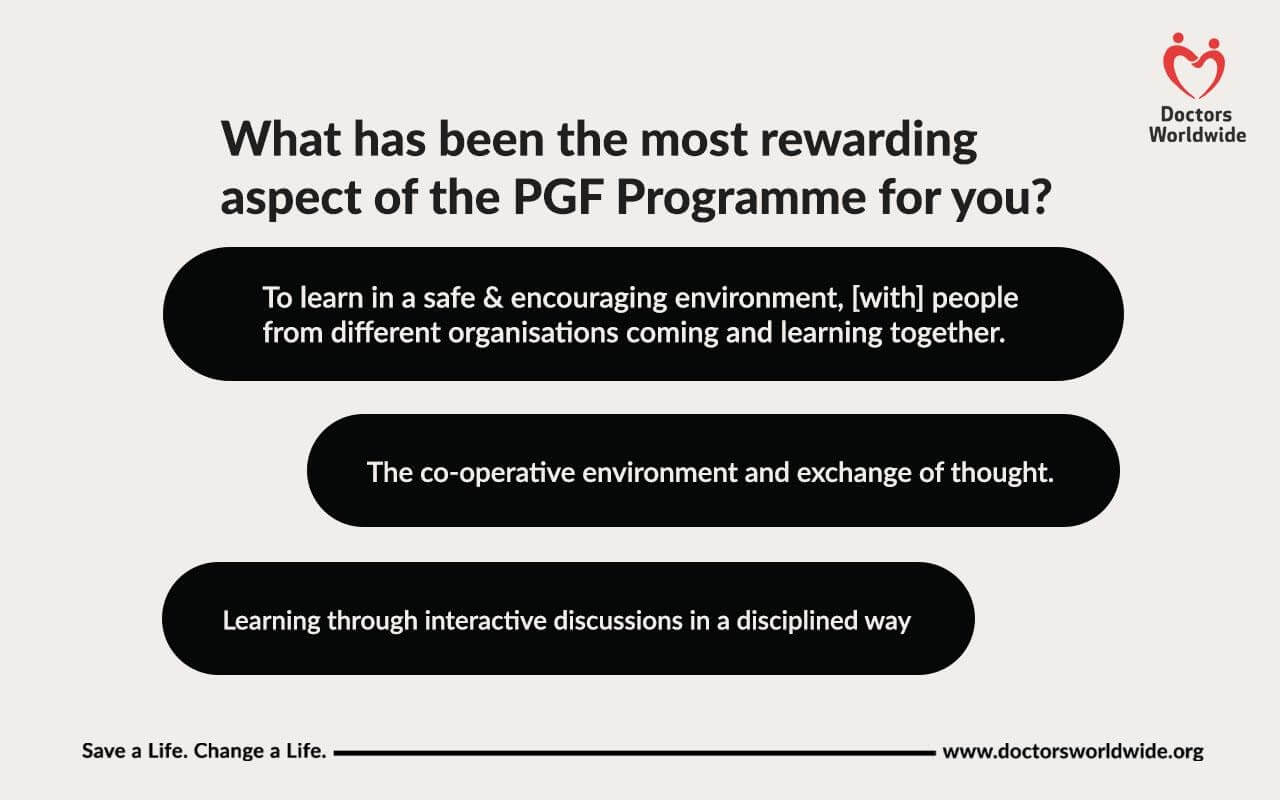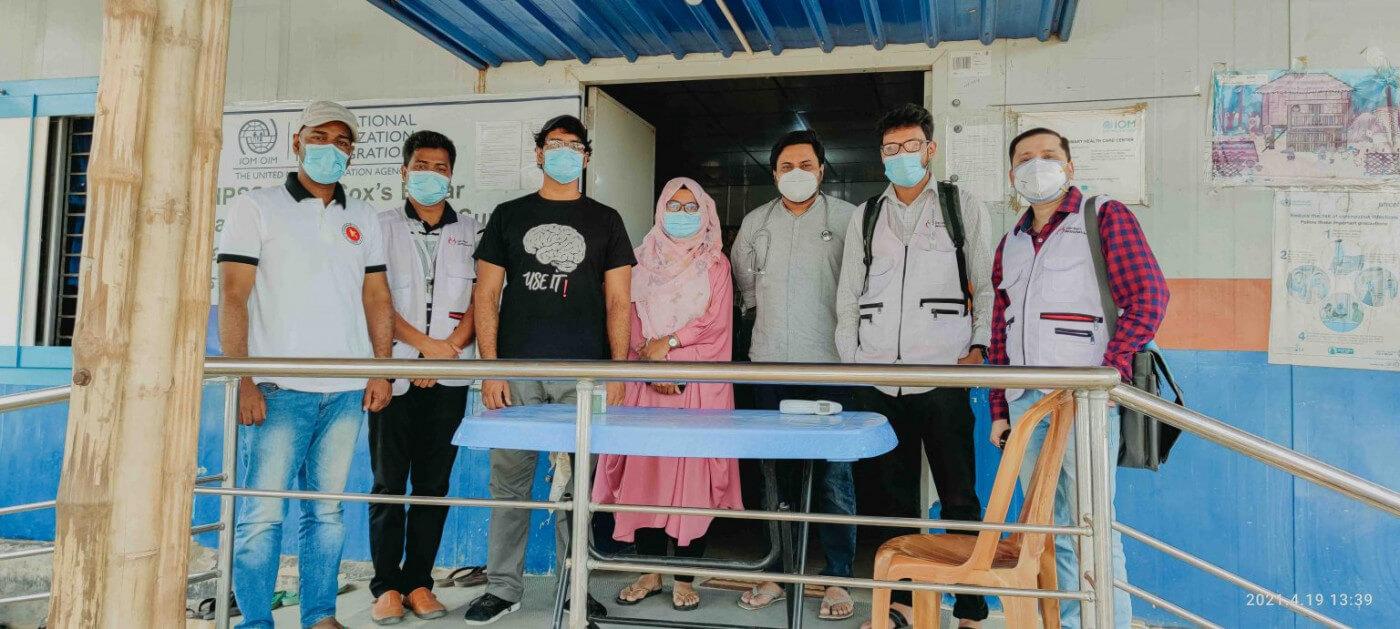With our Postgraduate Fellowship in Refugee and Migrant Health (PGF Programme) well underway, we spoke to our PGF Cohort E participants, to get to know a little more about them, their time working in the humanitarian crisis, and their experience undertaking the PGF project. Read on to find out a little more about some of our participants –
Meet: Dr Sumaya Tasnim
Organisation: IOM
Time spent working in the humanitarian crisis: 2 – 3 years
Why did you choose this profession?
It was my passion to work in this crisis moment – I always want to help those suffering the most and [working in] the humanitarian field gave me this opportunity.
What has been the most rewarding aspects of the PGF Programme?
To learn in a safe and encouraging environment, [with] people from different organisations coming and learning together.
Meet: Dr Parveen Akter
Organisation: Hope Foundation
Time spent working in the humanitarian crisis: 2 – 3 years
Why did you choose this profession?
I started working in the Rohingya refugee context when the influx started. After that, I moved to another job but was not getting inner peace [from it] and always missed my work here. So, I came back and started working here again. Now, I feel so at peace and comfortable. I want to lead an organisation in the humanitarian context by developing myself.
How has your PGF training helped your day-to-day practice?
Although I have been working here for a long time, the PGF programme cleared my concept about humanitarian work [provided clarity], and how to organise or respond to an emergency crisis in a constructed way.
And in your mind, what has been the most rewarding aspects of the PGF programme?
The role-play on emergency crisis.

Meet: Dr Golam Muttakin
Organisation: IOM
Time spent working in the humanitarian crisis: 1 - 2 years
Why did you choose this profession in the refugee response?
I dream to work in the humanitarian crisis so I can stand with them. In future, I want to become a leading humanitarian worker to help spread peace and make my country proud.
Looking back, what PGF learning topics have been most useful?
Intersectoral coordination and how to feel what they feel. ‘Always think us. Not they and we’.
What has been the most rewarding aspects of the PGF Programme?
The co-operative environment and exchange of thought – which helps create diversity [discussions].
Meet: Dr Jannatul Sabya Sultana
Organisation: RIC [Resource Integration Centre]
Time spent working in the humanitarian crisis: 1 – 2 years
Is there a specific instance of when you have applied PGF training to your day-to-day practice?
I launched a triage system in my facility which has never been practiced before. Its outcome was awesome. I have now also become more patient-oriented than before, and patients also find comfort in this.
Looking back, what PGF learning topics have been most useful?
I can’t say in one sentence. To name a few: Evidence-Based Practice, Practical Group Working, and Emergency & Triage.
And in your mind, what has been the most rewarding aspects of the PGF programme?
Learning through interactive discussions in a disciplined way.
/
Thanks to our participants for taking the same to share their thoughts with us.
Thank you so much to Dr Una, for taking the time to answer our questions, and make sure to subscribe to our mailing list below, and follow us on social media (twitter, facebook, instagram) for regular updates and campaigns!


